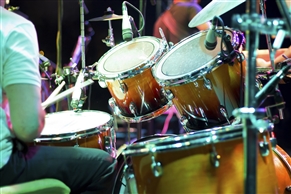New royal baby for William and Kate: Is middle child syndrome real?
Another royal baby is on the way! The Duke and Duchess of Cambridge have announced they are expecting their third child.
In a statement, Kensington Palace said that Kate is suffering from severe morning sickness, or Hyperemesis Gravidarum, once again. The news comes as five-year-old Prince George heads off the school for the first time on Thursday.
The couple's daughter Princess Charlotte is now two, but what will a third child mean for the dynamic of the royal family? Birth order is said to impact children's emotions and personality so Charlotte could be affected by what's know as middle child syndrome.
Is middle child syndrome real?
It was Dr Alfred Adler, an Austrian psychoanalyst and middle child himself, who first said that birth order inherently affects personality. Dr Alder believed middle children aren't as pampered as older children. They have the luxury of trying to dethrone the oldest child, while at the same time having power over younger siblings, he said.
But Dr Alder also believed middle children can grow up competitive and rebellious because they struggle to figure out their place in the family and, later, the world.
'Birth order has a real effect on children because middle children particularly get less one-on-one time with both parents at each stage of their development'
On the positive side, he said middle children might also be the most flexible and diplomatic members of the family.
However not all middle children will grow up with these personality traits. Dr Georgia Henderson, a clinical psychologist working with young people at the Priory, explains there is an effect - but it varies with each family's circumstances and parents can do lots to help.
"We do know that birth order has a real effect on children because middle children particularly get less one-on-one time with both parents at each stage of their development," she says.
"There is relatively established research to suggest that 'middle children' tend to have slightly lower self-esteem and more difficulties defining themselves within the family."
How will the dynamic change for the royal family?
Being a middle child means having a larger family, which could be more significant if your family happens to be royal.
"Being part of a loving larger family may also provide the young royals with more allies to help them understand their unique position in the public eye," Dr Henderson says.
"While other families need to be aware of how their children are jostling for attention and resources, Kate and William will also be very aware that George's position as the eldest holds a significant public role, not just a family one.
"This will put more pressure on the birth order effects as they have such serious repercussions for the future monarchy."
Why the gender matters
Whether Kate gives birth to a girl or a boy is significant for how middle child Charlotte will feel.
"One of the biggest factors that will determine the impact of the new baby is its gender," Dr Henderson adds.
"Studies have shown that sibling effects are mainly offset if the [middle] child is the only girl or boy in the family, and therefore maintains a sense of uniqueness."
What parents like Kate and William should do to curb any negative effects
It's all about making sure a middle child feels unique and has a strong sense of self, as well as spending enough time with both parents.
"There is very good evidence that the effects of birth order can be mediated by good attachment and establishing a sense of "uniqueness" for each child where they feel safe in their role in the family," Dr Henderson says.
"Making sure Charlotte has a strong sense of herself and her relationship with each parent outside the sibling relationship can be hugely protective.
"By following Princess Charlotte's lead and giving [their daughter] time and space to explore her own thoughts and feelings, she will feel much less worried about competing with anyone, let alone her siblings!
"The important thing to remember is making sure there is still time (and energy) for patience and calm even with a demanding new infant.
"Kate and William seem to have a very warm and natural bond with both their children and this is the most import factor of all."




